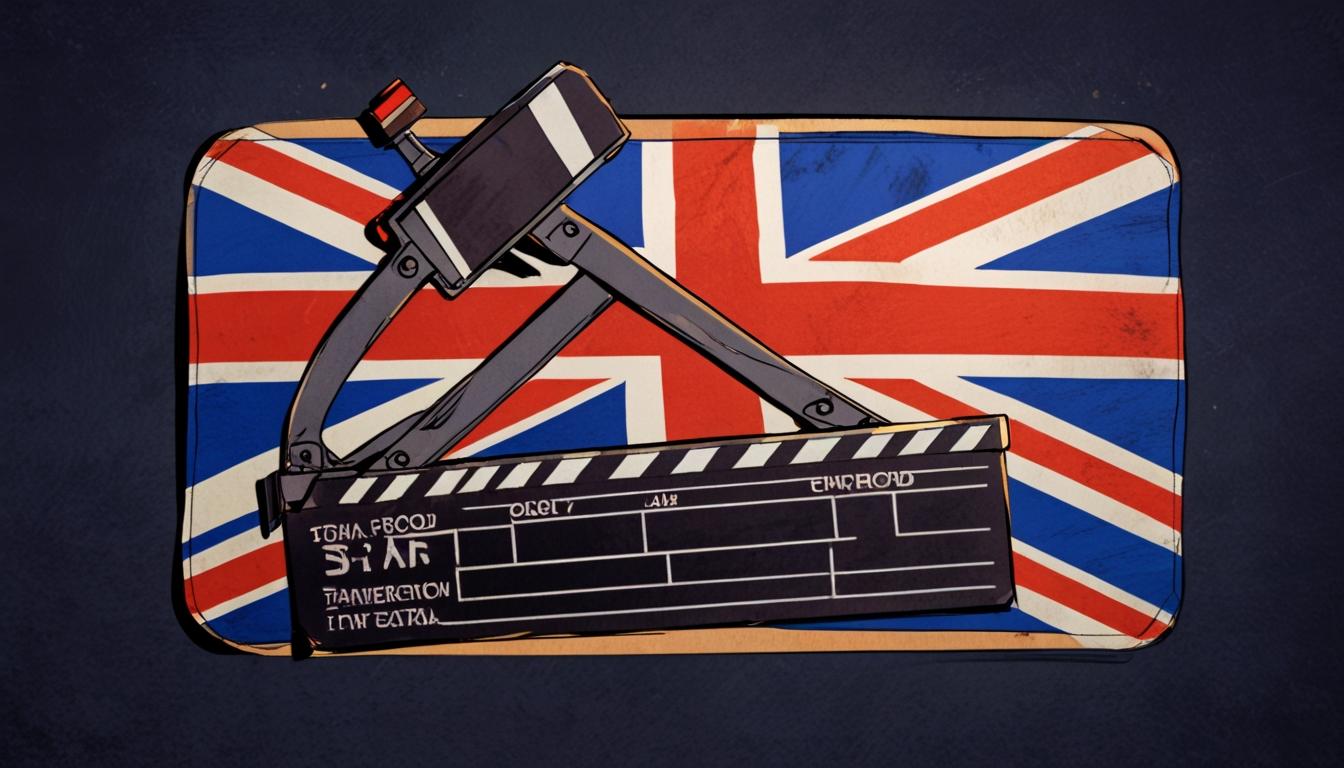The UK film industry, once a vibrant sector bustling with activity, now faces existential threats from the increasingly perilous geopolitical landscape marked by proposed 100% tariffs on foreign-made films. These tariffs, touted by U.S. officials as a lifeline for American cinema, are no more than a calculated attack on international collaboration, particularly affecting the UK's rich cinematic tradition. It’s alarming to observe rhetoric that suggests “Hollywood is being destroyed,” when the truth is that these tariffs threaten to dismantle the vital partnerships that have long enriched both British and American film industries.
While there may be some truth to claims about declining production spending in the U.S., the far-reaching implications of these tariffs for the UK cannot be overstated. The nuanced nature of film production, which frequently requires cross-border collaboration, now finds itself under siege. Even quintessentially British films typically engage with American studios, showcasing a creative synergy that is now at risk, jeopardizing the very definition of global cinema.
Britain has cultivated a flourishing film sector, buoyed by generous tax incentives, a skilled workforce, and stellar facilities—attributes that attract major Hollywood productions. Blockbusters like new entries in popular franchises are currently shooting across the UK, benefiting the economy immensely. However, should these tariffs take effect, the warnings from industry leaders are dire; thousands of jobs could vanish, threatening the livelihoods of nearly 200,000 professionals in an industry already beleaguered by uncertainty. The sector's contribution of $5.91 billion to the UK economy in 2024 pales in comparison to American figures, highlighting the growing vulnerability facing our creative industries.
The international ramifications of such a bold protectionist move are chilling. Experts warn that the logistical challenges of enforcing these tariffs could plunge the film industry into chaos. In a time when streaming services dominate and rely on a mix of global content, the very idea of economic barriers could suffocate production and stifle innovation, further exacerbating an industry already on edge.
Despite this grim outlook, resilience does exist within the global film community. At the recent Cannes Film Festival, industry leaders acknowledged the myriad of challenges—from strikes to pandemic recovery—but also celebrated the creativity that knows no bounds, underscoring the power of collaboration. However, it begs the question: can the UK government truly mount an effective defense against the shortsighted policies coming from across the Atlantic?
As the new Labour government engages in dialogue with U.S. officials, their attempts to navigate these turbulent waters seem fraught with difficulty. The disarray triggered by impending tariffs reveals a lack of decisive action that could swiftly counteract such threats. The UK’s film industry thrives on international cooperation, and the current government must develop a coherent strategy to shield it from being undermined.
In summation, while the rhetoric of bolstering American cinema may find traction among certain factions, it poses a significant threat to the collaborative spirit that has defined the global arts. If the UK is to protect its thriving independent film sector, now is the time for resolute action. The stakes extend far beyond financial implications; they encompass culture, creativity, and community. It is essential that we stand firm against these damaging policies, ensuring that stories continue to be told and that our artistic heritage remains intact, irrespective of political tides.
Source: Noah Wire Services
